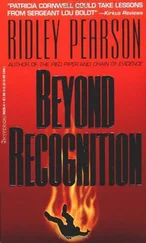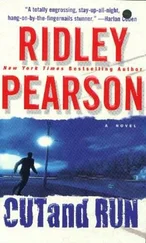She’s on alert now. Ready. For what, she’s unsure. Twice more she inquires with vendors or their helpers, this time displaying her EU credentials. Her third effort is to a middle-aged woman selling kitchen supplies. The woman suddenly won’t make eye contact. She straightens stacks of dishes that don’t need straightening. Grace loves it. Feeds off it. When she turns to move on, the tall woman in the scarf is gone. Grace carefully checks around her as she crosses through the melee for a fruit stand. Not only is the woman with the scarf nowhere to be seen, but she hasn’t been passed off to another surveillant. Grace bounces between several more stands, her guess confirmed. No one.
Two stalls later she asks a younger woman with a lip stud and a plump mouth. She takes one look at the photo and motions Grace to the side of a table bearing bedsheets, towels, lace tablecloths. Her action is deliberate and carries authority; she wants Grace out of the way, but she doesn’t want her to leave. It’s a full five minutes before she comes to Grace’s side of the stall. She doesn’t look at Grace, but neatens a stack of folded items. Grace takes the hint and rummages through a pile for the right color.
The vendor’s lips don’t move, like a ventriloquist. She throws her voice softly. “Van Speijkstraat. North. You will see a blue sign for the Mall De Baarsjes. Be careful.”
“Talk to me,” Grace says.
“Not possible.”
“Later. Name the place.”
“Not possible.” The vendor moves back to a waiting customer.
Grace feels a rush of heat flood through her. She’s addicted to this work. Only breaking through a firewall comes close to the thrill of fieldwork. She wants to prolong the moment, but it’s not to be and she knows it. The vendor acts as if she no longer exists. A reluctant Grace moves on, her pulse elevated, her breathing excited. She barely notices the crush of people surrounding her as she moves wraithlike among them. By the time she reaches the end of the market street and the horde thins, she realizes she has neglected to keep an eye out for the tall woman in the scarf. She makes a passing effort at it, but she’s coming down from a high; almost impossible to focus.
She wants to return to the vendor’s stall and live it all again.
—
KNOX RECEIVES A TEXTfrom Sonia’s number.
I have reconsidered.
It names a tram line, direction and time.
The woman is out of her element; a tram is out of the question. He returns a text:
I’m pleased. No tram. meet @ “chow fun” in rl district. 1 hr.
—
IT’S A CHINESE RESTAURANTthat offers pizza and video games, a place where people their age will stand out, which is just the way he wants it. There are three exits—the front door, another by the restrooms and another that connects to a head shop by day but is closed by night. Knox takes a table next to this door. He has sight lines to the street entrance thanks to a mirror behind a small drinks bar, and to the corridor housing the restrooms.
Sonia turns a few heads with her entrance but then takes a place at a table and orders a beer, never looking in Knox’s direction but instead concentrating on the pedestrians passing by the front windows. Smart, he thinks, a fast learner. When she’s satisfied, she joins him. Most women would sling the strap of a purse over the back of their chair, but Sonia steps her right leg through the strap as she sits down and places the satchel at her feet. He wonders at the contents of that bag.
“Think of a tram as a trap,” he says. “You can’t get off until and unless it makes a stop. It gives the enemy time to identify you, physically reach you and detain you.”
“The enemy,” she says, scoffing. She thinks of him as a little boy. “Photographers think like this?”
“This photographer does,” he says. “I’m here at your request.” He waits for her to say something. “You have a shoot for me?”
“It is possible.” She works her phone and slides it across the table to him. He reads. It’s an e-mail in English. The message is brief. A woman has been reported as missing. Knox recognizes the name from Sonia’s article. Another of her sources.
“From the police?” he asks.
“A contact. Reliable.”
“And then there were three,” he says.
“I’m sorry?”
“You quoted six different people in your article. This leaves three remaining. There’s an old black-and-white movie. You like movies? Ten Little Indians. ‘And then there were three.’”
She nods mournfully. “I must find Berna. The girl in my article.”
“The chances of that are slim,” Knox says, gloating that he now has the girl’s first name. She’s not asking for a photographer, but a bodyguard. He feels relief. He will maintain the pretense.
“I don’t expect a shared byline, but I do expect you to fight for my photographs to run along with the article wherever it’s published.”
“You know I have no say over that.”
“You have influence. You’re well known. I am not.”
“My editor and I will do what we can.”
That’s out of the way, allowing them both to tackle the unmentioned: that Knox brings other skills and qualities to the table.
“You must warn the other people you interviewed.”
“I tried to do this, following the car bomb. Of course I did! Several were unreachable, including this woman.”
“I forget her role in the piece.”
“A teacher. Not Berna’s teacher,” she says. “When a young girl failed to enroll in school this year, her teacher from the previous year thought the family must have left the district—moved residences. She then encountered the girl’s mother at a local market and confronted her. The mother shunned her, refusing to speak with her. I believe the school records are filled with such missing children.”
“A place to start,” Knox says.
“Acquiring enrollment records is not so easy. I have a contact, willing to help, but I would not anticipate much progress. Protecting children—” She cuts herself off, attempts to rub fatigue from her eyes.
“What about your remaining sources?”
“I was told they’d all left the city. Shows you what I know. If they have not, I’m sure they will now.”
Knox thinks what good bait the three would have made. Lost opportunities.
He doesn’t dare push his delicate relationship with Sonia too far toward investigation. He reminds himself he is a photographer, first and only.
“Honestly . . . I feel awful saying this . . . but it’s Berna I care about. I should never have let her escape.”
“Do you know the girl personally?”
Sonia views him curiously.
“You refer to her by name. I feel something each time you mention her.”
She eyes him skeptically, but secretly impressed. “It is personal, but not with this girl, not with Berna. A niece. Another time and place entirely.”
“You can’t fix the past in the present,” he cautions, wishing he hadn’t spoken. She questions him with heated eyes, requiring more of him. “Based on personal experience, I’d say it’s a mistake to try.”
“I’m a problem solver, Mr. Steele. It is what motivates me to write in the first place.”
He stifles what would be a cynical comeback. “I’m only saying: if your motivation is to help a niece who cannot be helped, you’re setting yourself up for failure.”
“When I want a therapist I’ll let you know.”
He hesitates. They’re into the thick bushes now. It’s darker here.
“You couldn’t have possibly known she would run.”
“She’s just a child, Mr. Steele. If you’d seen her.”
“Then we’ll find her,” he says. “We’ll find her, and the authorities will shut this thing down.” He’s feeling authoritative.
Читать дальше












